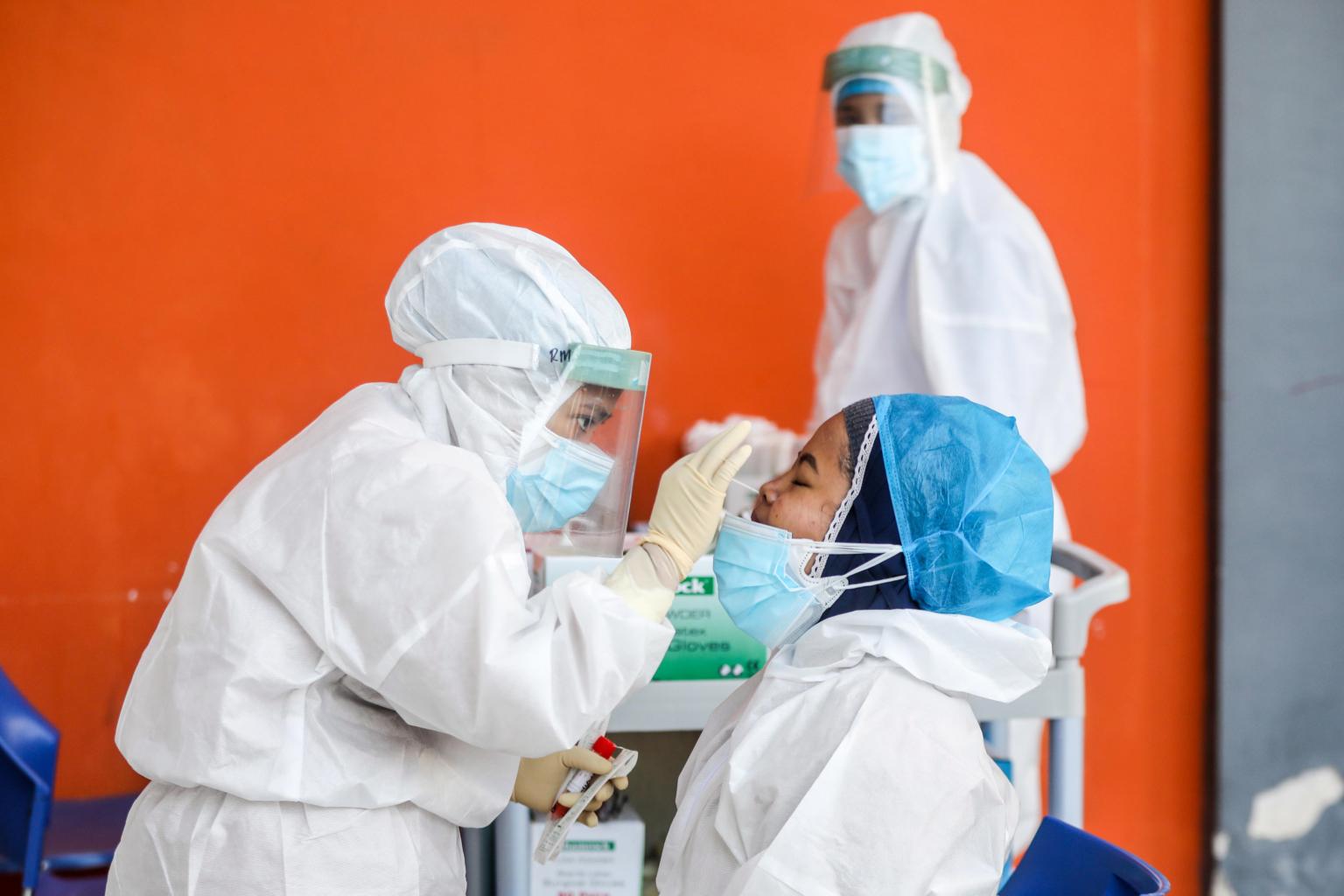Indonesia's health minister says Covid-19 testing insufficient as fears mount of worsening situation
Sign up now: Get insights on Asia's fast-moving developments

Indonesia's Health Minister said that health authorities want to widen testing soon by intensifying antigen tests.
PHOTO: EPA-EFE
JAKARTA - Indonesia's Health Minister Mr Budi Gunadi Sadikin said on Wednesday (Feb 17) Covid-19 testing is insufficient as epidemiologists expressed fears that the pandemic is getting out of control in the sprawling archipelago.
Citing a rise in the positivity rate, which is the percentage of tests that come back positive, Mr Budi said that health authorities want to widen testing soon by intensifying antigen tests.
"By doing this, we will detect a greater number of positive cases more quickly. We will also know faster if someone is infected," he said in a live-streamed press briefing.
Coping with the worst Covid-19 crisis in South-east Asia, Indonesia registered a record high positivity rate of 38.3 per cent on Tuesday (Feb 16), after it hit 36.1 per cent on Sunday and 32 per cent on Monday. Mr Budi attributed the surging rate to fewer people being tested over the long holiday for the Lunar New Year. Similar spikes occurred during past holidays.
Indonesia's overall positivity rate stands at around 18 per cent, much higher than five per cent recommended by the World Health Organisation (WHO).
The world's fourth most populous nation reported 9,687 new cases on Wednesday, bringing the total to 1.24 million. It also recorded 192 new deaths, resulting in overall fatalities of 33,788.
The increase in daily fresh cases has fallen below 10,000 since Feb 8, with the exception of Tuesday, which logged 10,029 cases.
Epidemiologists have expressed fears the pandemic may be growing out of control.
"The high positivity rate indicates that the pandemic is not under control," Mr Dicky Budiman, an epidemiologist at Australia's Griffith University, told The Straits Times. "A pandemic that is out of control means there are a lot of infections in the community that cannot be detected early."
He suggested that Indonesia's new daily cases cannot serve as "a valid reference" due to minimal testing.
Nearly one year after Covid-19 swept the country, Indonesia has only tested 6.7 million people, or around 2.5 per cent, of its nearly 270 million population.
The WHO recommends that each country conducts 1,000 tests per million people. This means Indonesia should be testing at least around 270,000 people per week, or some 38,000 a day. On Tuesday, the country fell short of that figure. Data from the Covid-19 Mitigation Task Force showed 26,156 people were tested on that day.
Dr Windhu Purnomo, an epidemiologist from Surabaya-based Airlangga University, echoed Mr Dicky, saying that he feared a large number of cases may have gone undetected.
"If we cannot intensively detect the cases, it's like facing a time bomb because the infections spread below the surface and we are not able to detect them," he said. "We can't reduce testing and (contact) tracing because of vaccination. That's a big mistake," said Dr Windhu.
On Wednesday, Indonesia kicked off the second phase of its vaccination programme, targeting at least 38.5 million public workers and the elderly. In the first phase, which is continuing, 1.12 million health workers out of nearly 1.5 million have been vaccinated.


